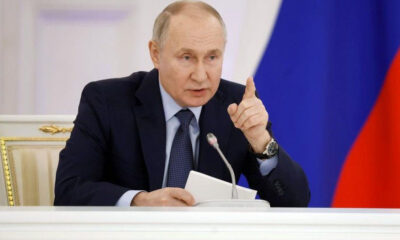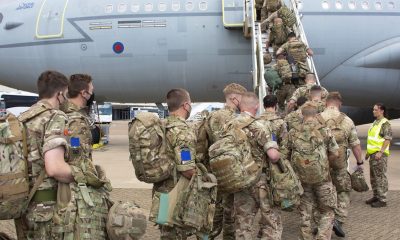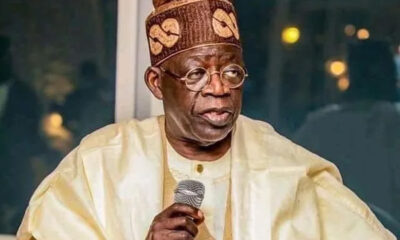International
Zelensky warns of ‘nasty’ Russian attack ahead of Ukraine independence day

Volodymyr Zelensky has advised Ukrainians to be aware of potential “nasty” and “cruel” attacks by Russia’s forces, in the run-up to Ukraine’s independence day next week.
The Ukrainian president urged citizens to be vigilant ahead of the celebrations on Wednesday 24 August which will mark 31 years of independence from Soviet rule.
Mr Zelensky said Ukrainians must not allow Moscow to “spread despondency and fear” ahead of the national holiday that is to take place exactly six months after Vladimir Putin launched his invasion of Ukraine.
But, he warned on Saturday in his nightly address to Ukrainians: “We should be aware that this week Russia may try to do something particularly nasty, something particularly cruel. Such is our enemy.
“But in any other week during these six months, Russia did the same thing all the time – disgusting and cruel.
“One of the key tasks of the enemy is to humiliate us, Ukrainians, to devalue our capabilities, our heroes, to spread despair, fear, to spread conflicts… Therefore, it is important never, for a single moment, to give in to this enemy pressure, not to wind oneself up, not to show weakness.”
Residents of Kharkiv, Ukraine’s second-largest city which has regularly been hit by Russian missiles, will be under curfew for the whole of Wednesday, regional governor Oleh Synehub said.
“Remain at home and take heed of warnings!” he wrote to residents on the Telegram messaging app.
READ ALSO:
- Violence Escalating in Osun as Another NURTW, APC Chieftain is Shot, Taken Away
- Two men claiming to be Soldiers allegedly kill cleric in bid to snatch his car
- Obasanjo Warns Tinubu’s Supporters over Endorsement Claim
In his speech, Mr Zelensky also indirectly referred to a series of explosions earlier on Saturday in Crimea, the Ukrainian territory annexed by Russia in 2014.
He said: “You can literally feel Crimea in the air this year, that the occupation there is only temporary and that Ukraine is coming back.”
Mikhail Razvozhayev, the Moscow-appointed governor of Sevastopol, the largest city in Crimea, said a Ukrainian drone had struck a building near the headquarters of Russia’s Black Sea fleet on Saturday morning.
“A drone flew onto the roof. It was flying low,” he said on Telegram. “It was downed right over the fleet headquarters. It fell on the roof and burned up. The attack failed.”
It was the second drone incident at the headquarters in three weeks. This month has also seen a number of explosions at a Russian airfield and ammunition depot on the peninsula.
Moscow’s forces there are on “high alert” and have found themselves “much more vulnerable than they thought they were”, a senior US defence official said, as reported by the Washington Post.
This weekend, fighting has intensified in the Donbas region of eastern Ukraine while “powerful explosions” rocked Melitopol in the south of the country, according to local mayor Ivan Ferodov.
Also in southern Ukraine, a missile wounded 14 civilians – including four children – in Voznesensk, a town 20 miles (30km) away from the Pivdennoukrainsk nuclear power plant, also known as the South Ukraine Nuclear Power Plant.
Vitaliy Kim, governor of the Mykolaiv region, said on Telegram that the children were among the wounded – with one losing an eye – when homes including a five-storey apartment block were hit.
The attack on Voznesensk was “another act of Russian nuclear terrorism”, said state-run Energoatom, which manages Ukraine’s four nuclear energy generators.
“It is possible that this missile was aimed specifically at the Pivdennoukrainsk plant, which the Russian military tried to seize back at the beginning of March,” it said in a statement.
Russia did not immediately respond to the accusation. Reuters news agency said that it could not verify the situation in Voznesensk, and that there were no reports of damage to the South Ukraine plant.
Earlier this week, missiles hit the Russian-occupied Zaporizhzhia nuclear power station in an attack that Ukraine and Russia have blamed each other for.
Vladimir Rogov, a Russia-appointed official in the nearby town of Enerhodar, said Ukrainian forces had launched at least four strikes on the plant.
Across the Dnipro river, directly opposite the Zaporizhzhia nuclear power station, the city of Nikopol was repeatedly shelled by Russian forces on Wednesday night, according to local mayor Yevhen Yetushenko.
Ukrainian officials said the missile attacks on the two power plants – the two biggest in Europe, and the Zaporizhzhia site the biggest in Europe – have revived fears of a nuclear disaster.
International
Zelenskyy Rejects Russia’s Claim of Drone Attack on Putin’s Residence, Warns of Escalation
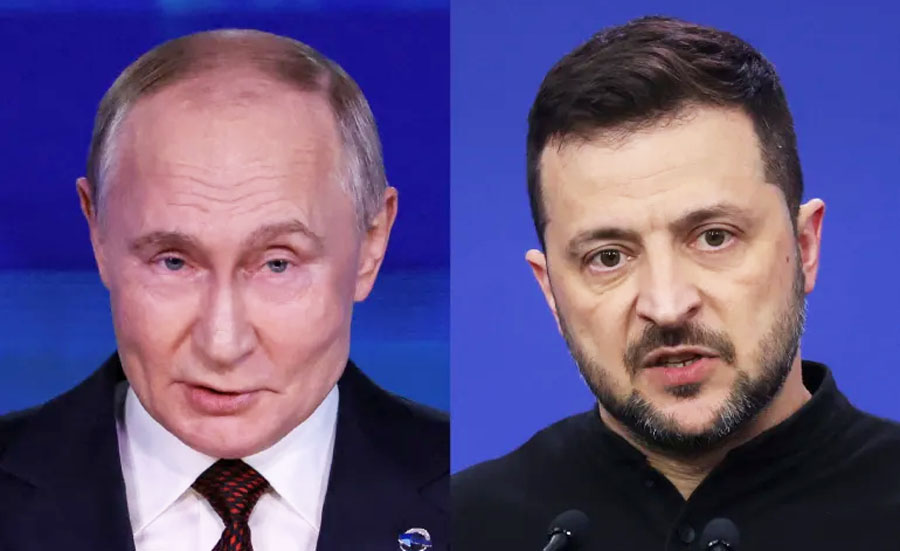
Zelenskyy Rejects Russia’s Claim of Drone Attack on Putin’s Residence, Warns of Escalation
Ukrainian President Volodymyr Zelenskyy has dismissed Russia’s claim that Ukraine launched a drone attack on a residence belonging to Russian President Vladimir Putin, describing the allegation as a fabrication that could be used to justify further military escalation.
Russia’s Foreign Minister Sergei Lavrov alleged that 91 long-range drones were launched overnight on Sunday at Putin’s state residence in the Novgorod region, northwest Russia. According to Moscow, all the unmanned aerial vehicles (UAVs) were intercepted by Russian air defences, with no casualties or damage recorded. The Kremlin did not clarify whether Putin was present at the location at the time.
Responding on Monday, Zelenskyy described the accusation as “typical Russian lies,” warning that it could serve as a pretext for intensified attacks on Ukraine and a hardening of Russia’s stance in ongoing peace negotiations.
“Everyone must be vigilant now. Absolutely everyone. A strike may be launched on the capital,” Zelenskyy told journalists, calling Russia’s statement a “threat” and accusing Moscow of seeking excuses to prolong the war.
In a post on X, the Ukrainian leader urged the international community not to remain silent, warning that Russia must not be allowed to sabotage efforts toward a lasting ceasefire.
READ ALSO:
- Amotekun Arrests 39 Suspected Terrorists Fleeing Sokoto After US Airstrikes
- Nigeria vs Uganda: Key Super Eagles Players Risk Suspension Ahead of AFCON Clash
- Malami, Son, Wife Remanded Over ₦Billions Money Laundering Charges
Lavrov, in a statement published on Telegram, said Moscow would reconsider its negotiating position, citing what he termed the “final degeneration” of Ukraine’s leadership. However, he said Russia would not withdraw from talks with the United States, according to Russian news agency Tass.
On Tuesday, the Kremlin said it would not provide evidence to support its claim, with a spokesperson confirming that Russia would now “toughen” its negotiating stance.
Ukraine’s Foreign Minister Andrii Sybiha rejected the allegation, insisting that Russia had failed to present any credible proof.
“Almost a day has passed, and Russia still hasn’t provided any plausible evidence to its accusations of Ukraine’s alleged attack on Putin’s residence. And they won’t — because there is none,” Sybiha wrote on X.
The controversy follows US-Ukraine talks in Florida on Sunday, where US President Donald Trump and Zelenskyy discussed a revised peace plan. Zelenskyy later told Fox News that there was a “possibility to end the war in 2026,” stressing that Ukraine would require continued US support.
He disclosed that Washington had proposed 15-year security guarantees, with Trump saying negotiations were “95 per cent complete.” Zelenskyy identified territorial disputes, the Russian-occupied Zaporizhzhia nuclear power plant, and unresolved issues in the Donbas region as major sticking points.
The White House confirmed that Trump held what it described as a “positive call” with Putin following the US-Ukraine talks. Kremlin aide Yuri Ushakov said Putin raised the alleged drone incident during the conversation, claiming it occurred shortly after what Washington viewed as a successful diplomatic engagement.
Trump later told reporters he was informed of the incident by Putin and was “very angry,” though he acknowledged that it was also possible the attack had not occurred.
Zelenskyy Rejects Russia’s Claim of Drone Attack on Putin’s Residence, Warns of Escalation
International
China Stages Record Military Exercises Around Taiwan Amid US Arms Deal
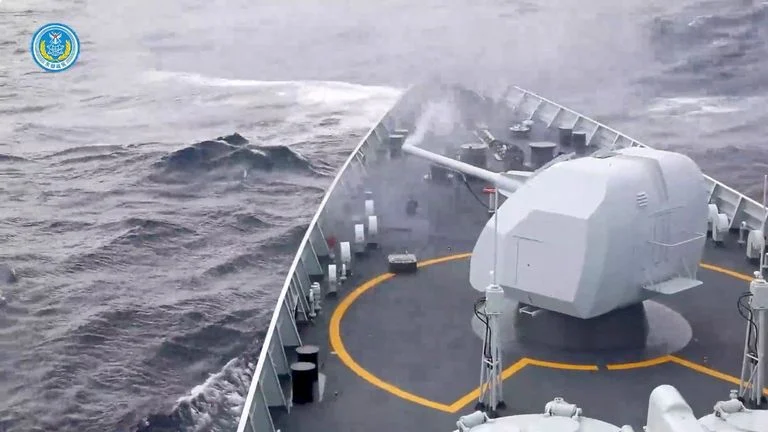
China Stages Record Military Exercises Around Taiwan Amid US Arms Deal
China on Tuesday deployed warships, fighter jets and artillery units in its largest-ever military exercises around Taiwan, simulating a full blockade of the self-governed island amid rising regional tensions.
The drills, codenamed “Justice Mission 2025,” involved China’s army, navy, air force and rocket force, and featured live-fire exercises, simulated strikes on land and sea targets, and coordinated operations aimed at sealing off Taiwan’s ports and surrounding airspace.
China’s Eastern Theater Command, which oversees operations in the Taiwan Strait, said the exercises were intended to deter what it described as “separatist forces” in Taiwan and “external interference.” Beijing’s foreign ministry characterised the drills as a “severe punishment” for pro-independence elements and warned outside powers against “using Taiwan to contain China.”
State media released footage of Chinese warships, combat aircraft and artillery units mobilising across multiple zones encircling Taiwan. China’s Maritime Safety Administration designated a record seven live-fire zones, covering a wider area and operating closer to Taiwan than in previous drills.
READ ALSO:
- Niger Delta Crackdown: Army Seizes ₦150m Stolen Oil, Arrests 19 Suspects
- I Won’t Be Anyone’s Running Mate in 2027 — Peter Obi
- Anthony Joshua injured as two die in fatal Lagos-Ibadan Expressway crash (plus photos)
The exercises come days after the United States approved an $11.1bn arms package for Taiwan, prompting strong protests from Beijing and sanctions against US defence companies. Analysts say the timing signals China’s intent to send a firm warning to both Taipei and Washington.
Taiwan’s presidential office condemned the drills, describing them as a threat to regional stability and international norms. The island’s defence ministry said it detected dozens of Chinese military aircraft and vessels operating around Taiwan and placed its forces on high alert, deploying aircraft, naval units and missile systems.
“Our armed forces are prepared for the worst and must consider every possible scenario,” a senior Taiwanese defence official said, warning that live-fire drills in the Taiwan Strait pose risks to neighbouring countries as well as international shipping and aviation.
Taiwan’s aviation authority said flights were being rerouted after China declared temporary danger zones, while the coast guard deployed large patrol vessels to monitor Chinese ships near Taiwan’s waters.
China has accused Taiwan President Lai Ching-te of pursuing independence, a claim he denies. Lai maintains that Taiwan is already a sovereign state and says his administration seeks to preserve the status quo while strengthening the island’s defences. Polls consistently show that most Taiwanese favour maintaining the current situation.
Since 2022, China has intensified military pressure on Taiwan, staging repeated large-scale drills in response to what it views as provocative actions, including closer US–Taiwan security ties. The latest manoeuvres mark the sixth major exercise since then and the first under Eastern Theater Command commander Yang Zhibin.
Chinese media said the drills were designed to demonstrate Beijing’s ability to cut Taiwan off from external support, with emphasis on blocking deep-water ports and key supply routes, while showcasing advanced systems such as drones and robotic platforms.
China Stages Record Military Exercises Around Taiwan Amid US Arms Deal
International
Train Derailment in Southern Mexico Kills 13, Injures Nearly 100 in Oaxaca
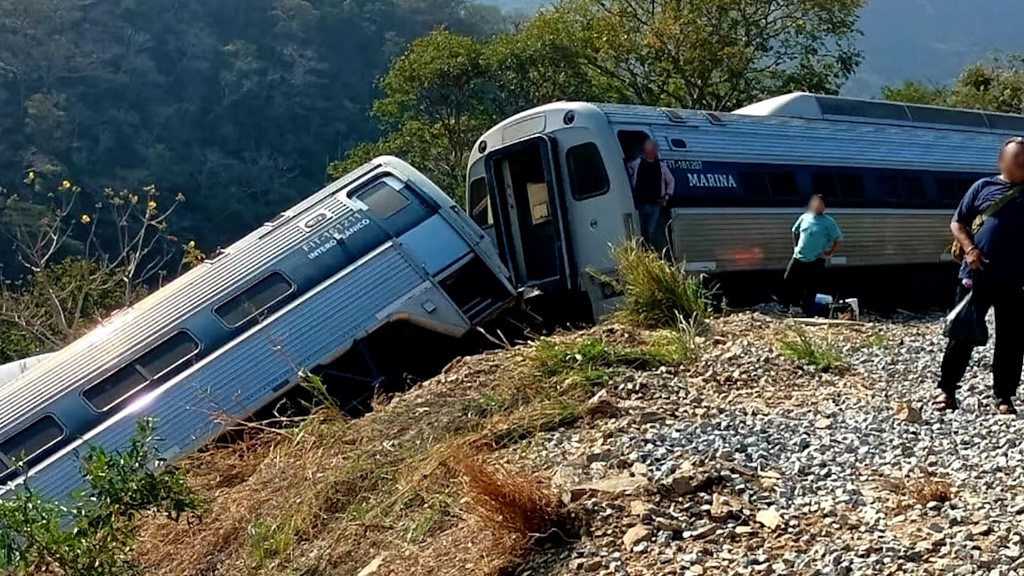
Train Derailment in Southern Mexico Kills 13, Injures Nearly 100 in Oaxaca
At least 13 people were killed and almost 100 others injured after a passenger train derailed in southern Mexico, authorities have confirmed.
The accident occurred in Oaxaca State, in Mexico’s south-eastern region, as the Interoceanic train rounded a bend near the town of Nizanda, according to the Mexican Navy, which operates the country’s railway network.
The train was travelling between the Gulf of Mexico and the Pacific Ocean, carrying 241 passengers and nine crew members at the time of the derailment. The navy said 98 people sustained injuries, with 36 currently receiving treatment in hospitals.
Mexican President Claudia Sheinbaum disclosed that five of the injured were in serious condition, adding that senior government officials, including the Secretary of the Navy, were en route to the crash site.
READ ALSO:
- Tragedy in Lekki as Lexus SUV Crashes Into Children, One Feared Dead, Four Injured
- Presidency Intervenes in Akume, Alia Political Dispute in Benue
- ISWAP Militants Storm Yobe Communities, Wound Village Head, Abduct Driver
Mexico’s Attorney General confirmed that a full investigation into the cause of the derailment has been launched.
Images from the scene showed emergency responders assisting passengers from the train, which left the tracks and partially tilted over the edge of a cliff, complicating rescue efforts.
The Interoceanic rail line, which links the Pacific port city of Salina Cruz with Coatzacoalcos on the Gulf Coast, consists of two locomotives and four passenger coaches. The service was inaugurated two years ago as part of a major federal project to revitalise the Isthmus of Tehuantepec.
Oaxaca State Governor Salomón Jara Cruz expressed deep regret over the tragedy, stating that state authorities were working closely with federal emergency agencies to assist victims and their families.
The Interoceanic railway is a flagship infrastructure initiative launched under former President Andrés Manuel López Obrador, aimed at transforming southern Mexico into a strategic trade and logistics corridor through expanded ports, rail links and industrial development.
Train Derailment in Southern Mexico Kills 13, Injures Nearly 100 in Oaxaca
BBC
-

 metro2 days ago
metro2 days agoIbadan Explosion: Fayose Releases Documents, Claims Makinde Got ₦50bn from FG
-

 metro1 day ago
metro1 day agoNiger Delta Crackdown: Army Seizes ₦150m Stolen Oil, Arrests 19 Suspects
-
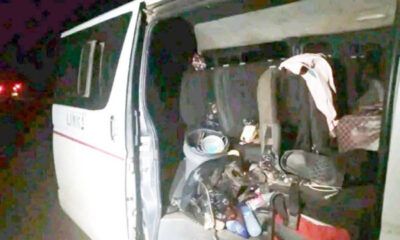
 metro2 days ago
metro2 days agoPlateau Kidnappers Demand ₦1.5m Each as 28 Muslim Travellers Remain in Captivity
-

 Sports2 days ago
Sports2 days agoCristiano Ronaldo Wins Best Middle East Player at 2025 Globe Soccer Awards in Dubai
-

 Opinion3 days ago
Opinion3 days agoHow a Misleading Channels TV Headline Reignited Nigeria’s Religious Tensions
-

 Sports1 day ago
Sports1 day agoAnthony Joshua injured as two die in fatal Lagos-Ibadan Expressway crash (plus photos)
-

 metro3 days ago
metro3 days agoNigerian Army Kills 438 Boko Haram, ISWAP Terrorists in Seven Months
-
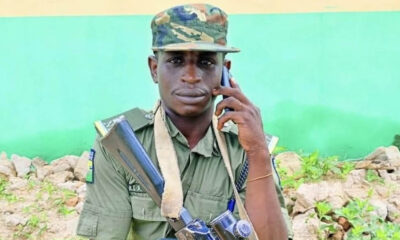
 metro2 days ago
metro2 days agoBello Turji Not Killed in US Airstrikes, Security Expert Debunks Reports





